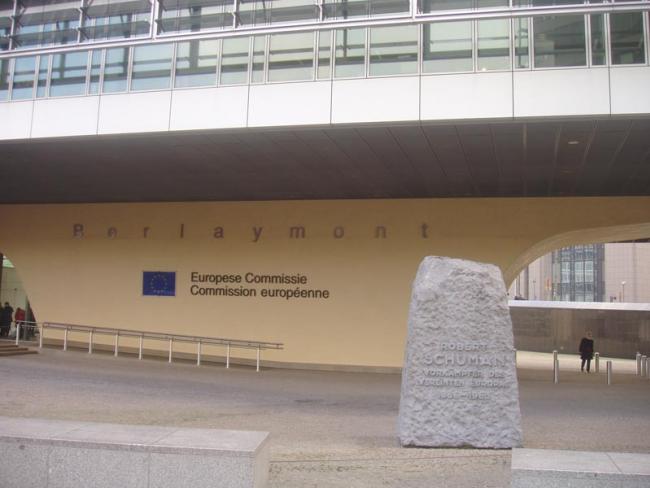27 March 2020

The Berlaymont building in Brussels, headquarters of the European Commission. Photo Workers.
Nearly four years after the Brexit referendum, the EU is still clinging to the hope that it can keep control of Britain away from the British people – if leaks about its proposals for a withdrawal treaty prove correct.
The EU’s 441-page treaty draft has not been publicly released, although the Commission has sent it to the European Parliament and the EU Council. According to the Guardian newspaper, which has “obtained” a copy, its proposals run directly counter to the British government’s refusal to agree to automatically accepting new EU laws on state aid, the environment and working conditions.
The EU document, the Guardian reports, insists that disputes over state aid rules must be arbitrated according to EU law and the European Court of Justice, which must be able to issue “binding rulings” that British courts will be forced to implement.
And it is taking the same approach to the environment, where it wants its own targets for emissions, air quality and conservation to continue to be applied in Britain.
Also thrown into the harmonisation basket are “health and sanitary safety in the agricultural and food sector”, throwing a huge sector of farming and retail into the EU’s grasp.
Control
The British government has not yet published its detailed proposals for a draft treaty, though it has said it will do so soon. But the EU can be in no doubt about its central thrust, which is to “take back control”, as UK chief negotiator David Frost said in a speech in Brussels on 17 February.
“We bring to the negotiations not some clever tactical positioning but the fundamentals of what it means to be an independent country. It is central to our vision that we must have the ability to set laws that suit us – to claim the right that every other non-EU country in the world has,” he said.
The coronavirus crisis has brought face-to-face talks to a halt. A planned negotiation round last week was cancelled, and negotiators were looking at using video conferencing. But with reports of lockdown in Belgium and elsewhere affecting the ability of officials to prepare for talks, negotiations have effectively come to a halt.
The EU is clearly hoping to use the epidemic to delay Britain’s exit. The official UK position, according to a widely quoted government spokesperson on 16 March, is that "The transition period ends on December 31, 2020. This is enshrined in UK law."
But there is widespread talk that the UK government is indeed considering an extension. All those who have campaigned for British sovereignty and independence from the EU will need to keep a close eye on developments.
